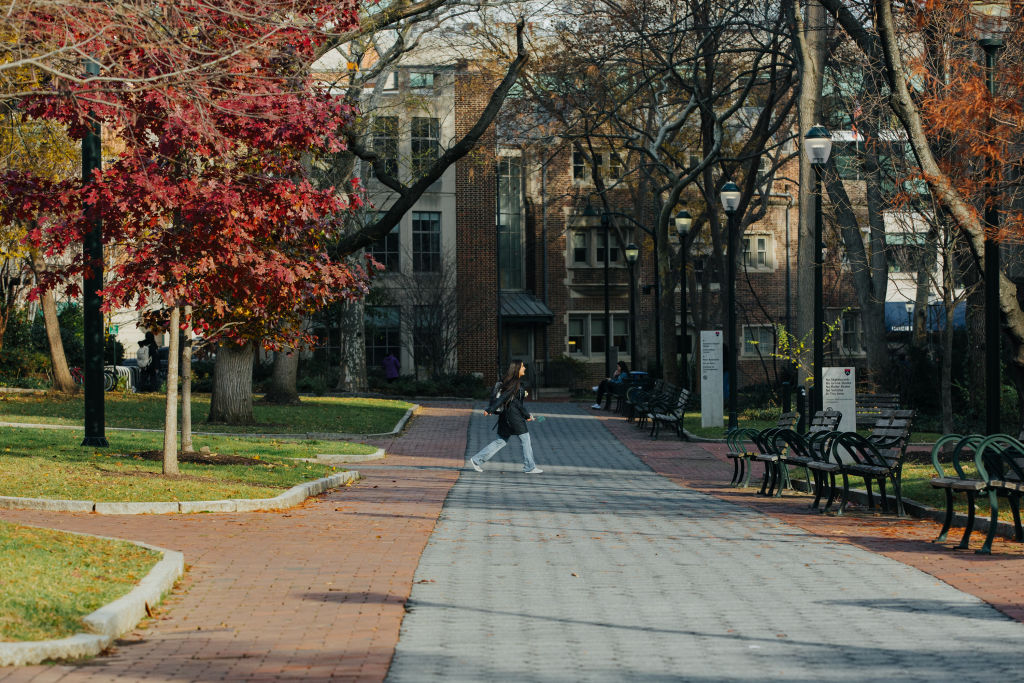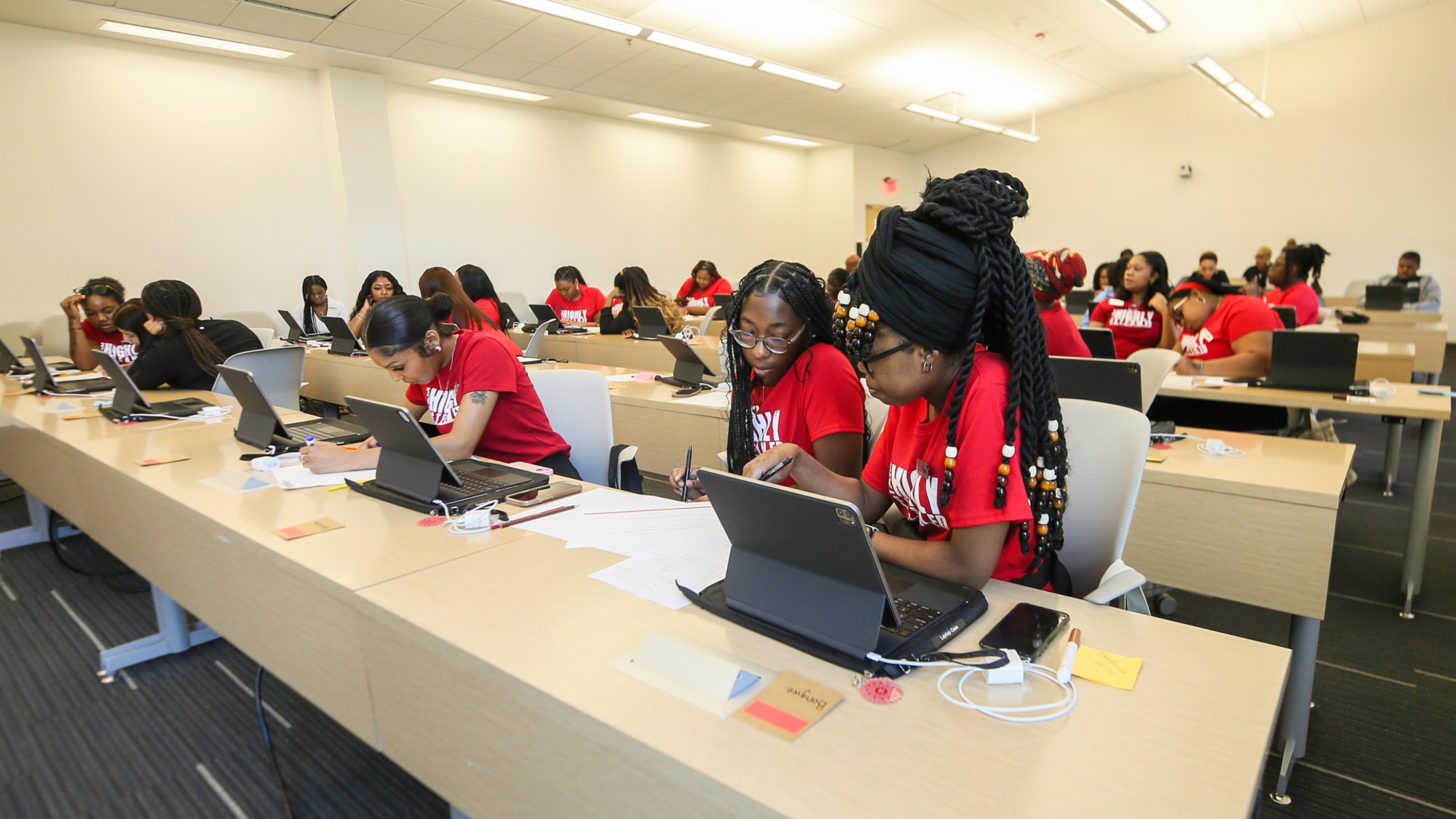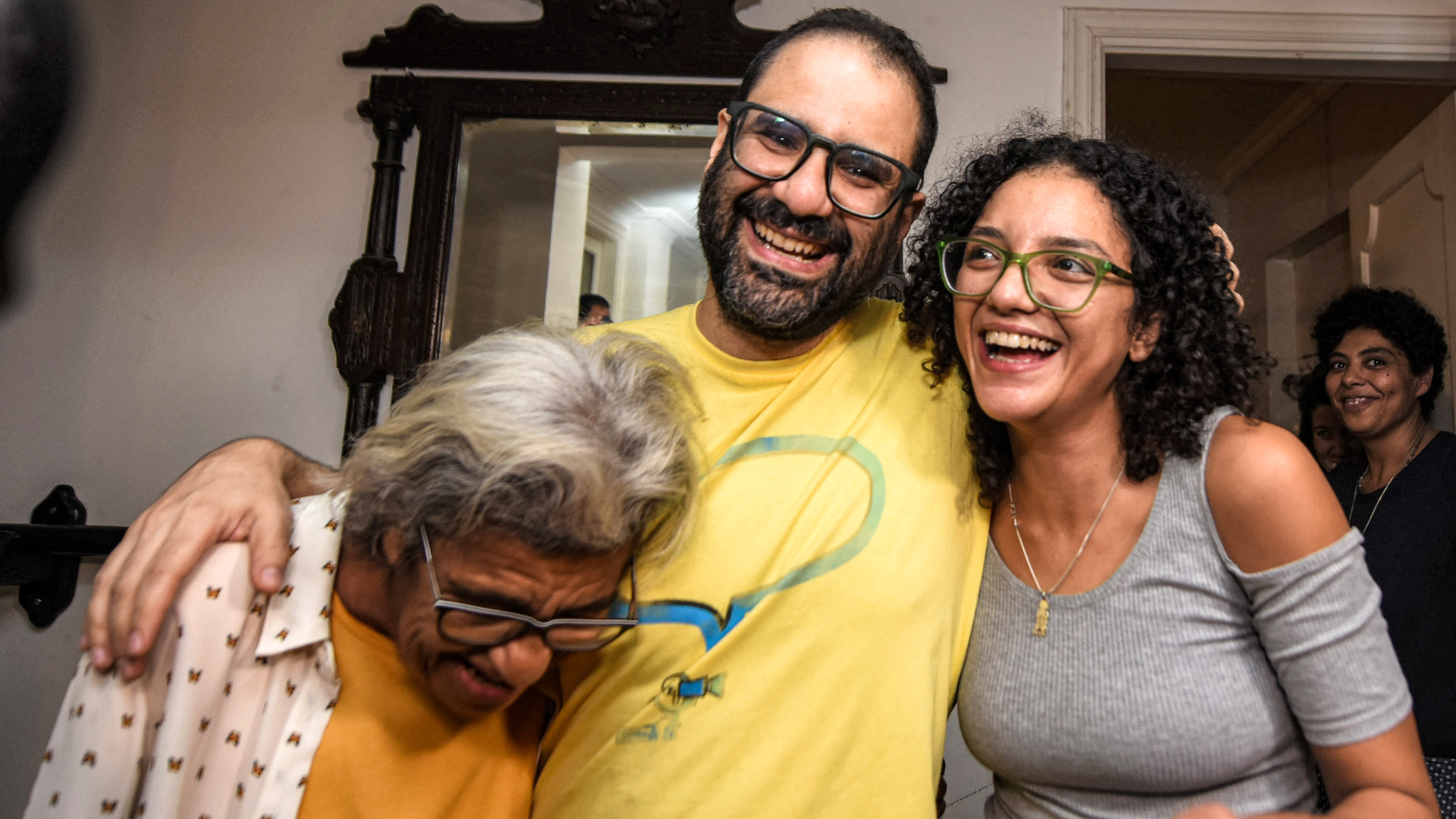What firing or not firing a university president accomplishes
Harvard backed Claudine Gay, but Penn's Liz Magill resigned after a backlash over their antisemitism testimony


A free daily email with the biggest news stories of the day – and the best features from TheWeek.com
You are now subscribed
Your newsletter sign-up was successful
The House on Wednesday passed a bipartisan resolution rebuking the presidents of Harvard University, the University of Pennsylvania, and the Massachusetts Institute of Technology over their testimony on their handling of rising antisemitism on college campuses since the Israel-Hamas war erupted. Lawmakers at a Dec. 7 congressional hearing asked whether someone calling for genocide of Jews would violate campus rules, and the administrators gave what The Boston Globe described as "legalistic and equivocal answers" that outraged alumni, donors, and politicians.
Claudine Gay of Harvard and Sally Kornbluth of MIT survived calls to step down. Harvard's board called Gay "the right leader to help our community heal" in "this tumultuous and difficult time." But, CNN noted, Penn President Liz Magill resigned last weekend after donors canceled gifts and the board of the university's Wharton Business School called for new leadership.
Scott Bok, the chair of Penn's board of trustees, also resigned. He told USA Today that Magill had been "over prepared and over lawyered" before heading into a "hostile forum." "She provided a legalistic answer to a moral question, and that made for a dreadful 30-second sound bite in what was more than five hours of testimony," he said. Will all of this scrutiny and criticism of university presidents have any impact on the thorny issue of protecting free expression — and stamping out hate speech — on college campuses?
The Week
Escape your echo chamber. Get the facts behind the news, plus analysis from multiple perspectives.

Sign up for The Week's Free Newsletters
From our morning news briefing to a weekly Good News Newsletter, get the best of The Week delivered directly to your inbox.
From our morning news briefing to a weekly Good News Newsletter, get the best of The Week delivered directly to your inbox.
Booting college presidents accomplishes nothing
Universities can't salvage their reputations by publicly shaming their presidents, says Harvard psychology professor Steven Pinker in The Boston Globe. "A history of punishing speech is what sapped the presidents' credibility in the first place." At Harvard, "using the wrong pronoun is a hanging offense but calling for another Holocaust depends on context." Instead of expanding "forbidden speech" to include antisemitism and Islamophobia, "universities should adopt a clear and conspicuous policy on academic freedom." The way to fight "deplorable speech" is to refute it, not criminalize it.
That's why standing by these university leaders was the right thing to do, says Jill Filipovic at CNN. "On the merits, they are correct. Context does matter. And permitted speech should be as broad as possible." Their "most effective questioner," Rep. Elise Stefanik (R-N.Y.), set a trap for them when she asked Magill — "Yes or no?" — whether calling for genocide of Jews violates Penn's rules. "She was referring to the now-common pro-Palestine chants 'from the river to the sea' and the use of the word 'intifada,'" gray areas. College administrators should "limit campus speech" only when it "threatens or harasses or incites," not when some simply find it "ugly and offensive."
"Antisemitism is a real, significant problem at Harvard and across the United States," says the editorial board of the Harvard Crimson, the university's student newspaper. Vicious posts are everywhere on social media, and hate crimes against Jewish people in New York City have tripled from October 2022 to October 2023. But "the problem of antisemitism demands nuanced and serious discussion. Instead, it's been treated as a prop in political theater."
Leaders must be held accountable
There is nothing phony about the fear of Jewish students who "feel unsafe on campus," says Alan Dershowitz in The Boston Globe. They are responding to "actual incidents" of harassment. Gay's defenders insist the pressure to fire her was inconsistent with Harvard's commitment to academic freedom. But university presidents should be held accountable for the atmosphere on campus. It's fair to call them out for failing "to make Jewish students feel safe."
A free daily email with the biggest news stories of the day – and the best features from TheWeek.com
"Harvard may think this will all blow over," says Joe Concha in The Messenger. But standing by Gay won't stop donations from drying up, or Jewish students from seeking other schools where they feel protected. One thing keeping Gay on the job won't do is make Harvard a place where all feel safe.
"Too few people understand basic concepts of academic freedom and free expression" on college campuses today, says Danielle Allen in The Washington Post. We've "gotten lost" trying to "protect intellectual freedom and establish a culture of mutual respect at the same time." It's essential to discipline people for genuine harassment, like distributing antisemitic or Islamophobic flyers. It's also OK to correct or challenge ideas we think are wrong, just as a professor would correct a student's math. Schools must write clear policies that encourage free debate while discouraging a "culture of intimidation." The "health of our democracy" depends on it.
Harold Maass is a contributing editor at The Week. He has been writing for The Week since the 2001 debut of the U.S. print edition and served as editor of TheWeek.com when it launched in 2008. Harold started his career as a newspaper reporter in South Florida and Haiti. He has previously worked for a variety of news outlets, including The Miami Herald, ABC News and Fox News, and for several years wrote a daily roundup of financial news for The Week and Yahoo Finance.
-
 Political cartoons for February 16
Political cartoons for February 16Cartoons Monday’s political cartoons include President's Day, a valentine from the Epstein files, and more
-
 Regent Hong Kong: a tranquil haven with a prime waterfront spot
Regent Hong Kong: a tranquil haven with a prime waterfront spotThe Week Recommends The trendy hotel recently underwent an extensive two-year revamp
-
 The problem with diagnosing profound autism
The problem with diagnosing profound autismThe Explainer Experts are reconsidering the idea of autism as a spectrum, which could impact diagnoses and policy making for the condition
-
 ‘Those rights don’t exist to protect criminals’
‘Those rights don’t exist to protect criminals’Instant Opinion Opinion, comment and editorials of the day
-
 ‘The censorious effect is the same, even if deployed covertly’
‘The censorious effect is the same, even if deployed covertly’Instant Opinion Opinion, comment and editorials of the day
-
 Trump demands $1B from Harvard, deepening feud
Trump demands $1B from Harvard, deepening feudSpeed Read Trump has continually gone after the university during his second term
-
 ‘The sport is still run on a shoestring’
‘The sport is still run on a shoestring’Instant Opinion Opinion, comment and editorials of the day
-
 ‘We know how to make our educational system world-class again’
‘We know how to make our educational system world-class again’Instant Opinion Opinion, comment and editorials of the day
-
 Alaa Abd el-Fattah: should Egyptian dissident be stripped of UK citizenship?
Alaa Abd el-Fattah: should Egyptian dissident be stripped of UK citizenship?Today's Big Question Resurfaced social media posts appear to show the democracy activist calling for the killing of Zionists and police
-
 Which side is JD Vance taking for MAGA’s infighting?
Which side is JD Vance taking for MAGA’s infighting?Today’s Big Question GOP insiders are battling over antisemitism with an eye on 2028
-
 ‘What a corrective to such nonsense’
‘What a corrective to such nonsense’Instant Opinion Opinion, comment and editorials of the day
